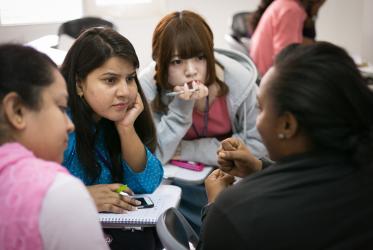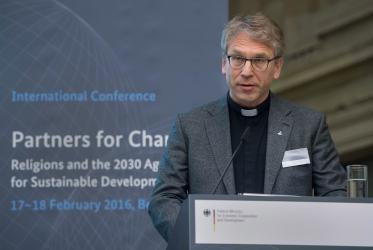Displaying 1 - 20 of 26
01 February 2022
South Sudan Church leaders welcome new cabinet
15 March 2020
Peacemakers at work in Sri Lanka
29 April 2019
Fr Alexi - a peacemaker in Syria
21 December 2018
A moment in ‘Time’: an interreligious vision in Erlangen
20 December 2018
African women embark on pilgrimage in Burundi
29 November 2017
Women in development create space for hope in Egypt
15 June 2017
WCC general secretary speaks on religion and discrimination
14 February 2017
Churches in Norway and Pakistan break new ecumenical ground
26 January 2017
Tveit offers input at religion and development meeting
03 October 2016
Symposium focuses on religion, violence, extremism
04 February 2016
WCC urges responsibility for and support to the refugees in Europe
04 September 2015











